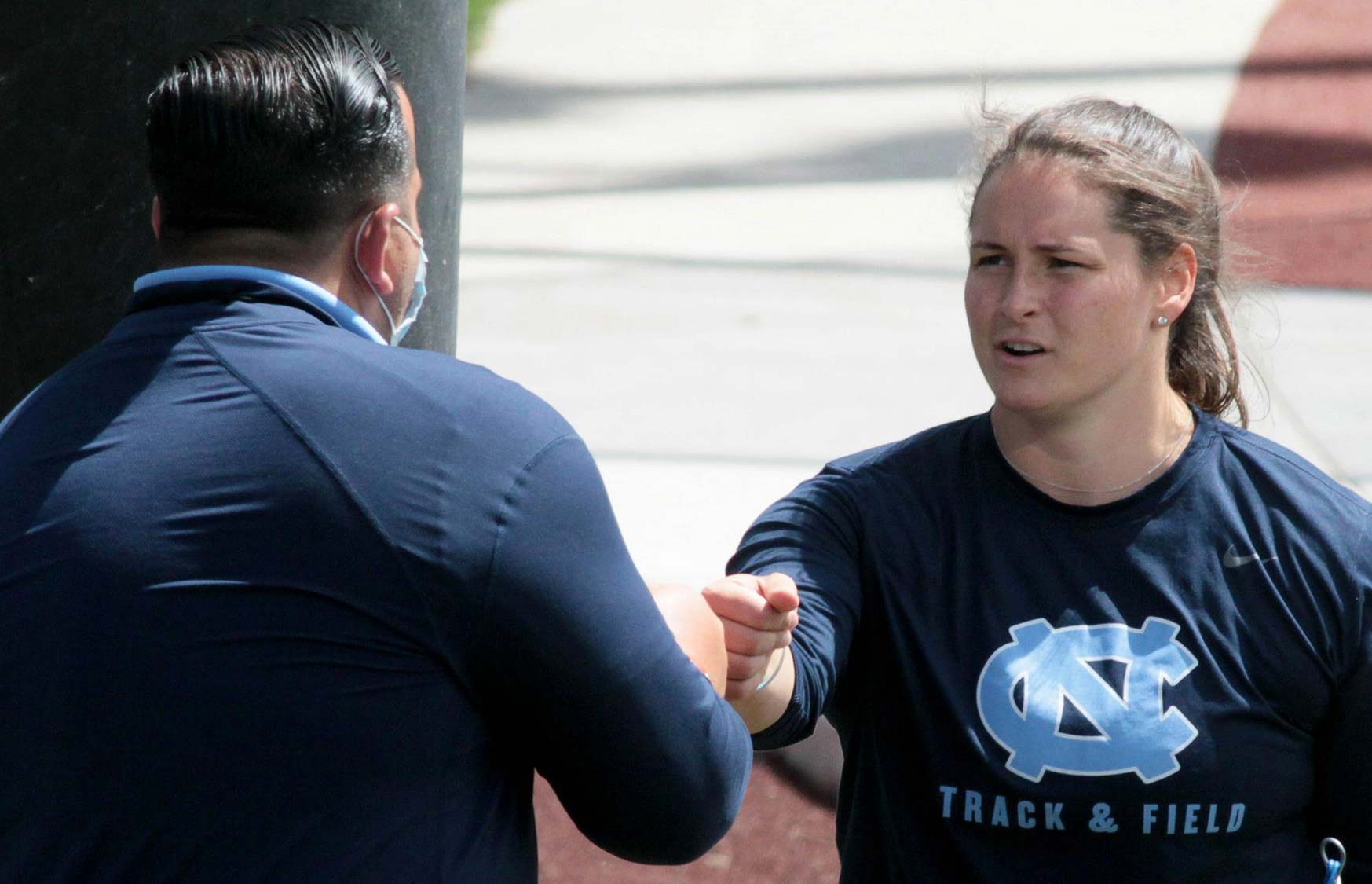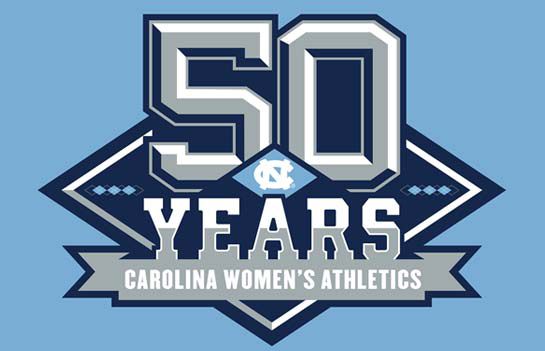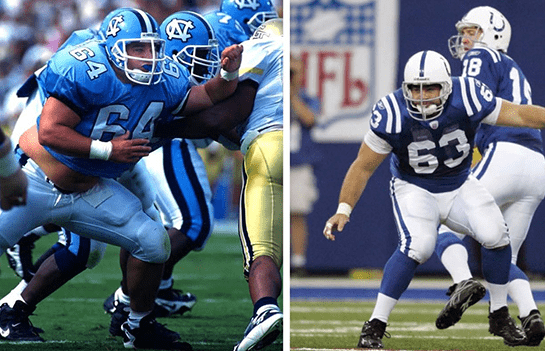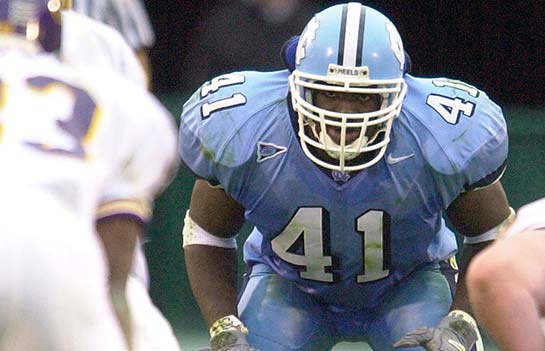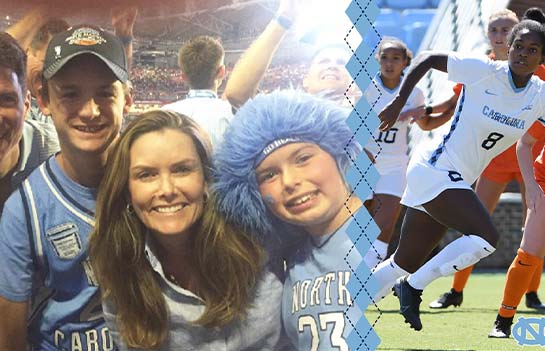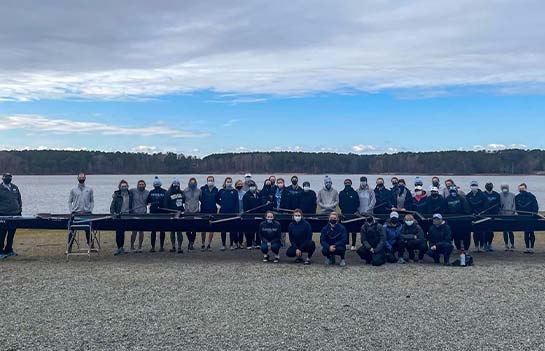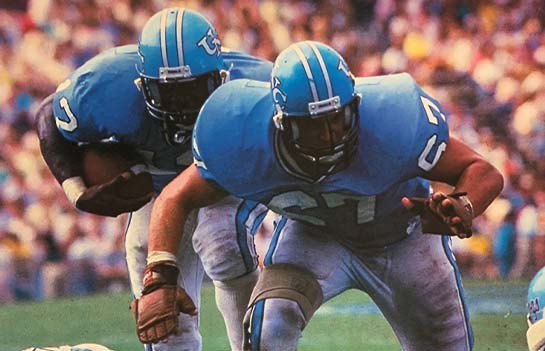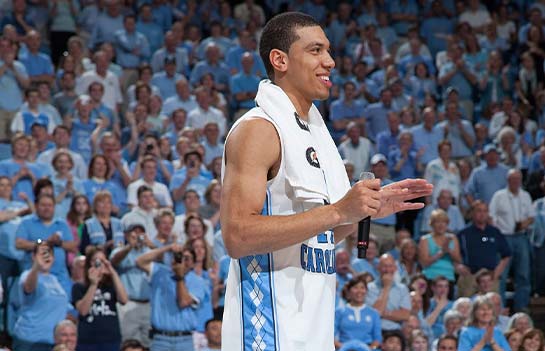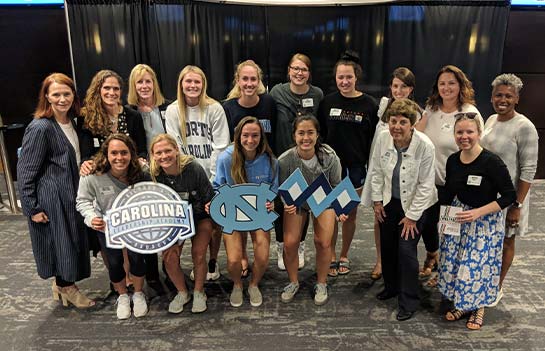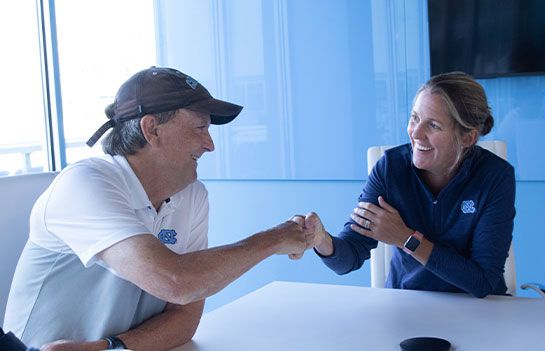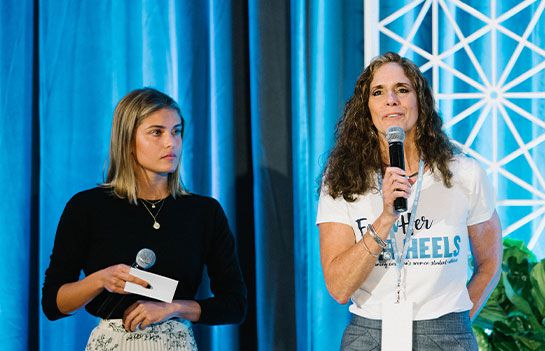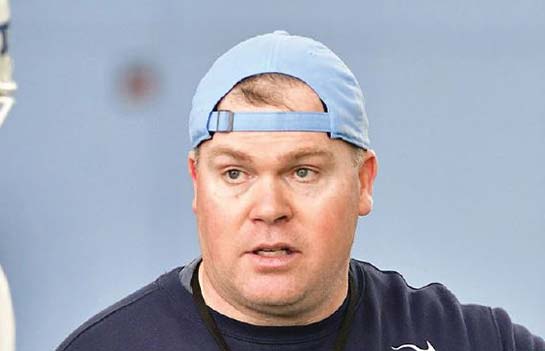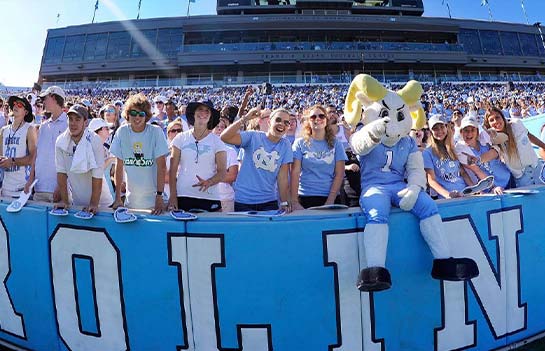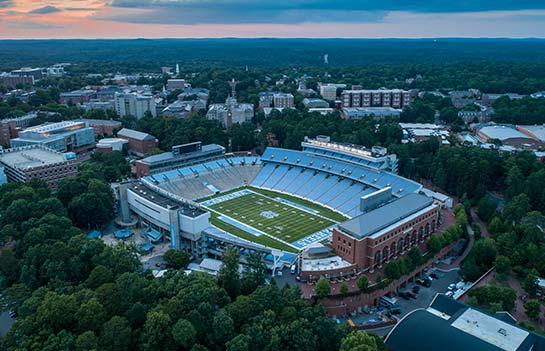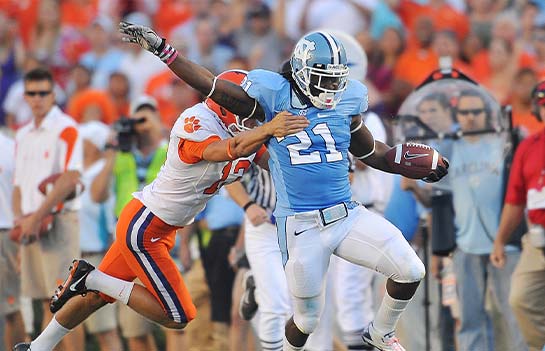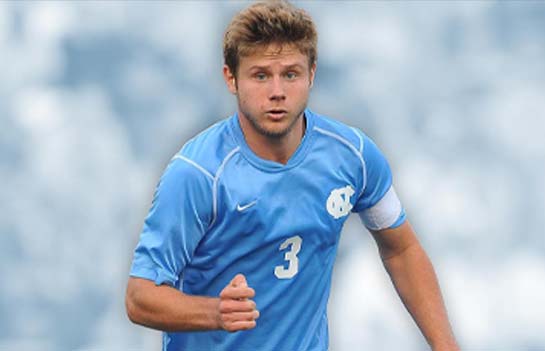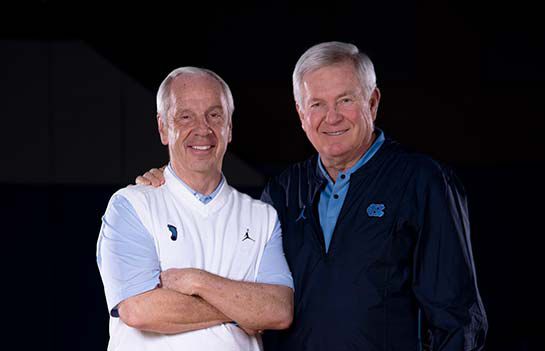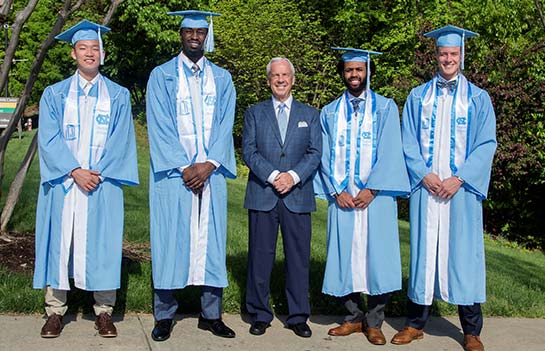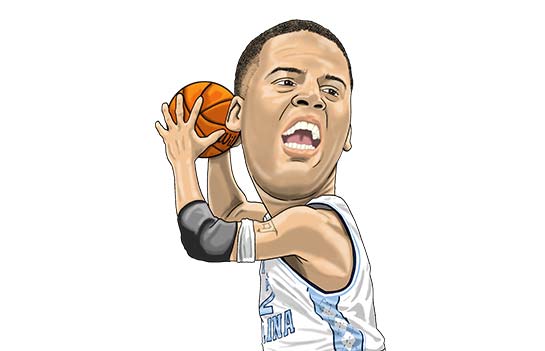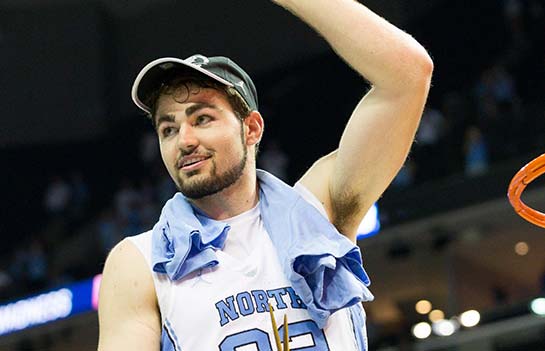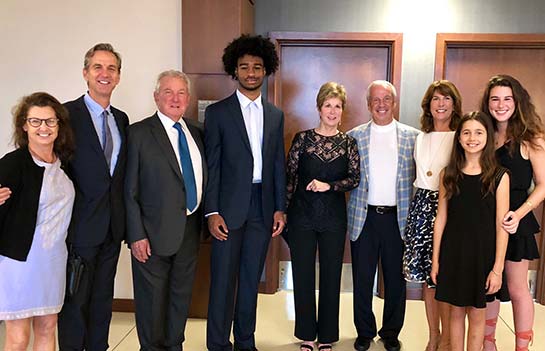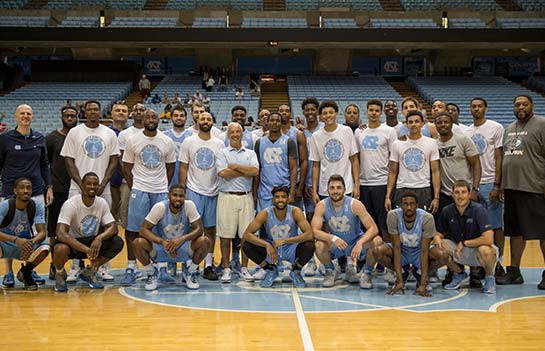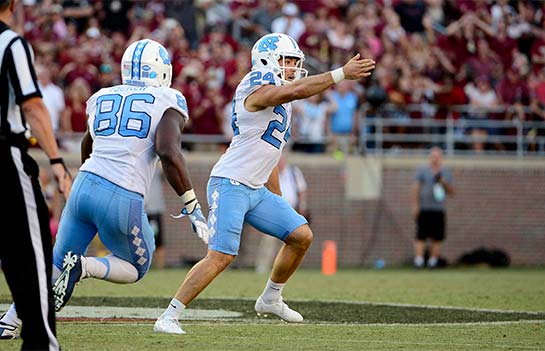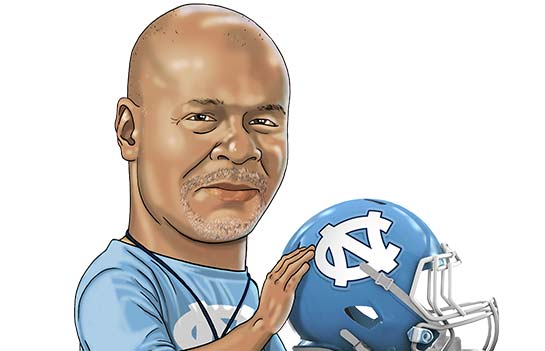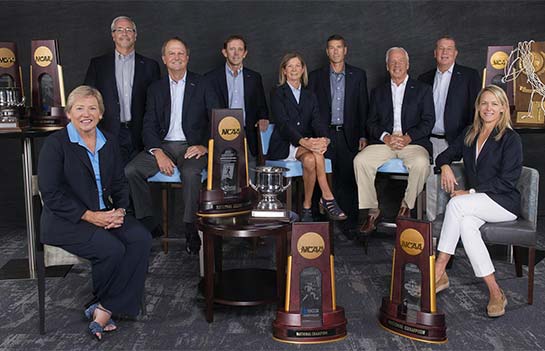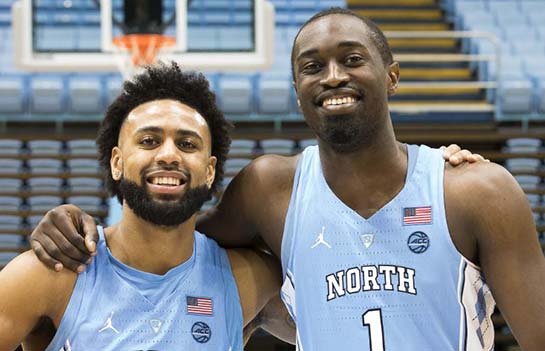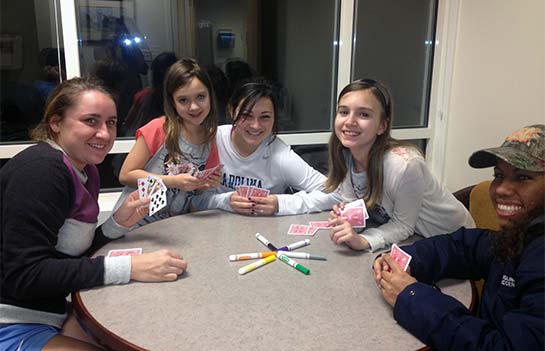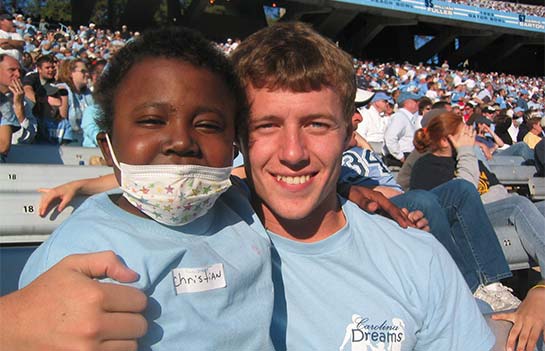AHEAD OF ITS TIME
THE SCHOLARSHIP ENDOWMENT TRUST, CELEBRATING ITS 50TH ANNIVERSARY, WAS A GAME-CHANGER FOR TAR HEEL ATHLETICS
By: Speed Hallman
An Educational Foundation publication once noted Ernie Williamson's ability to move people. He moved them as a tackle for the Tar Heels and the Redskins; as a football, wrestling and track coach at the University of the South; and as UNC's chief athletics fundraiser for three decades. Moyer Smith, who succeeded Williamson as head of the Educational Foundation, observed that Williamson could walk into a meeting carrying a $5 UNC ashtray and walk out with a $5,000 check.
Times have changed. Williamson passed away in 2002. The Rams Club no longer gives out ashtrays, and five grand doesn't go as far as it used to. But thanks to his knack for connecting with donors and his vision for a new way to fund scholarships, The Rams Club is celebrating the 50th anniversary of an Ernie Williamson initiative that broke new ground at UNC and across the nation.
In 1968 Williamson, working alongside key players such as Bill Cherry, Maurice Koury and John Pope, launched The Educational Foundation's Scholarship Endowment Trust. Their idea was that income from the endowment would fund athletic scholarships while the principal remained untouched. The fund would grow over time through the generosity of donors and thoughtful investing. Williamson, the Foundation's public face, believed in the endowment and evangelized for it wherever he could congregate a group of Tar Heel faithful to hear the message.
"Ernie was unbelievable," said Bob Eubanks, a longtime board member and past president of The Educational Foundation. "He was a former football player at Carolina, and played for the Redskins. A huge guy, 6-8 or 6-9, he had the memory of Dean Smith. He never forgot a name, which is a tremendous asset when you're dealing with the public. He was a wonderful guy. Everybody loved him. He bled Carolina blue."
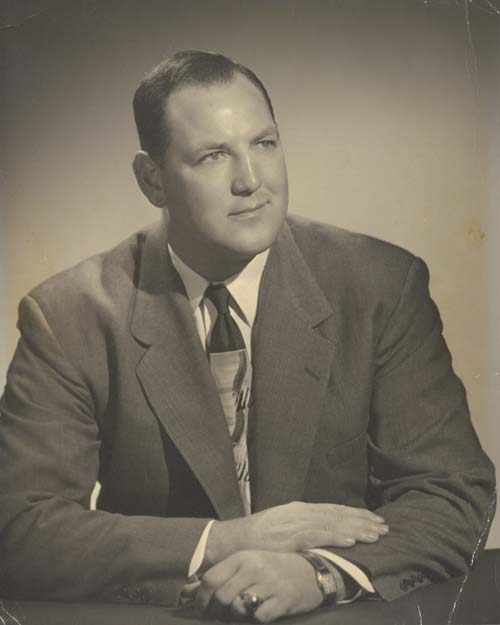
Moyer Smith believes, and documents from the period back him up, that the endowment was originally conceived as something of a rainy day fund. "Our athletic program was starting to grow, and initially I think the idea was to set up a separate bank account as a savings account to take care of the needs of the athletic scholarship program when we didn't raise as much money, but we still had the heavy expenses," he said. "I think the idea of endowment funds came out of the fact that if we raised enough money to take care of business and we had some extra, what were we going to do with it?"
The idea forever changed the game for Tar Heel athletics, and it continues to pay dividends. The initial goal was to cover UNC's athletic scholarship budget – $135,000 at that time – with endowment income. Assuming a 5 percent payout, UNC would need a $2.7 million endowment fund. Ernie and his cohorts were thinking big, but they knew they had to start somewhere. And like the adroit tackle he once was, Williamson, aided by Educational Foundation Treasurer Bill Cherry, fended off every attempt to raid the scholarship endowment for current athletic department needs.
Smith joined the department in 1977 and he remembers a discussion of an urgent facility need early in his tenure. "Somebody said, ‘We'll just take it out of the endowment money and put it back later,'" Smith recalled.
"You'd have thought it was Bill Cherry's money that they were going to take," he said. "Bill said, ‘You can't take it out of the endowment,' and Ernie spoke up, and I think Koury and Pope were there, and they all said no, we're not going to do it."
The issue came up again during the Smith Center campaign. "There was even some talk that if we didn't make it (the fundraising goal), we could take it out of endowment," Smith said, adding that Cherry once again responded, "We'll find the money and we won't be using the endowment."
The Smith Center campaign concluded successfully with $35.5 million raised. Smith said the campaign's success demonstrated to donors and staff that Carolina Athletics was capable of raising major gifts, and could raise money for facilities as well as scholarships.
"There was never any mention after that time of raiding the endowment," he said.
Smith succeeded Williamson as executive vice president of The Educational Foundation in 1987. "When I took over for Ernie, he said, ‘You need to build up this endowment fund. That's the key to our success.' And I totally agreed with him. I placed a lot of emphasis on it during my time, and when I left (in 2002) it was over $100 million. I really believed in it. Ernie convinced me."
With the development team's steady focus on building the endowment, generous support from donors and outstanding fund management, the endowment has grown to $240 million. In 2018-19, endowment income is covering $11.1 million, nearly 63 percent, of the Foundation's $17.7 million scholarship bill. The best number of all, and one that Williamson would delight in sharing with the Tar Heel faithful, is there are 528 student-athletes who are studying at the University of North Carolina right now with support from the endowment.
It doesn't seem like rocket science today, but in 1968 no one else in collegiate athletics had created a general scholarship endowment, at least not at a public university. Over time, endowment support became crucial in helping coaches add top student-athletes to their rosters. It also had two unforeseen and exceptionally fortuitous consequences: helping Carolina build and refurbish athletic facilities, and positioning the University for the sea of changes brought to college athletics with the passage of Title IX in 19 72.
Because Title IX bars any form of discrimination within institutions receiving federal funds, campuses must offer an equal number of opportunities in men's and women's sports. Many colleges and universities achieved parity by cutting some of their men's sports, but UNC, with support from the endowment and donors, was able to add women's sports. Today Carolina fields 28 varsity sports, a feat matched by very few universities. This comprehensive array of competitive opportunities ensures that Tar Heel men and women have equal opportunities to participate in intercollegiate athletics.
"Without the endowment fund there wouldn't be a 28-sport program," Smith said. "We became a pioneer in women's programs. We had women's programs before a lot of people did. And we had a more complete women's program."
With 28 sports come a vast array of facility needs, with line items in the budget for repairs, refurbishments and replacements. The scholarship endowment supports ongoing brick and mortar needs by acting as a backstop, paying well over half of the annual scholarship bill and taking pressure off of the budget.
"The endowment was always our strength," Smith said. "We always had that to back us up. It gave us the confidence and the wherewithal to do other things. Our main obligation was to the scholarship program, and with the endowment we had that covered. You can give the endowment credit for all the facility improvements we were able to make in the '90's as a result because the distribution from the endowment was taking care of most of the scholarship expenses."
Not only that, the facility boom, beginning with the Smith Center, helped build the endowment. "I know that building the Smith Center was a huge boost to the scholarship endowment, because a lot of people gave to the scholarship endowment to get their seats in the building," Eubanks said.
Dick Baddour, athletic director from 1997 to 2012, said his counterparts around the country took notice of Carolina's successes and strong financial support. "I can't tell you how many ADs have called me over time and said ‘Tell me about The Rams Club. How did you do that? How did it get established?'" The answer, he said, is "We've got an endowment, and most of them do it (scholarship support) with annual dollars. They're not able to do it at our level." The endowment, he said, is a "rock-solid base" for everything athletics does.
Eubanks agrees. "Scholarships have been fundamental to our mission. Are they still fundamental as we're pressed to build better facilities? Are scholarships still at the forefront? I don't think there's any question about that."
He offered a vivid example of the endowment's impact. "When the ACC had its 50th anniversary, it identified the top 50 athletes in every sport," he said. "Across the board, UNC dominated. Just take those names and think about those kids not being here. Because that's the impact. It has always been a mission, a primary function, a core value of a broad-based program at UNC."
"If the endowment fund did not exist," Smith said, "our athletic program today would not be what it is. By a long shot."
The scholarship endowment has been a presence at every Carolina game over the last 50 years. It's linked to names Tar Heel fans will never forget and to names they never knew, to the superstars and to those who competed, graduated and used their Carolina educations to practice their professions and serve their communities.
Williamson would likely deflect any credit for his initiative. He'd sidestep to put the donors in the spotlight. Eubanks, a 50-year board member, speaks from experience and in Williamson's stead. "The members of the Foundation are not going to let Carolina down. They'll step up when you need support – it's just a matter of communicating with them. And like Ernie Williamson, they love our athletics program."
More Stories
The impact of giving comes through in wonderful stories about Carolina student-athletes and coaches, as well as the donors who make their opportunities possible. Learn more about the life-changing impact you can have on a fellow Tar Heel through one of the features included here:
